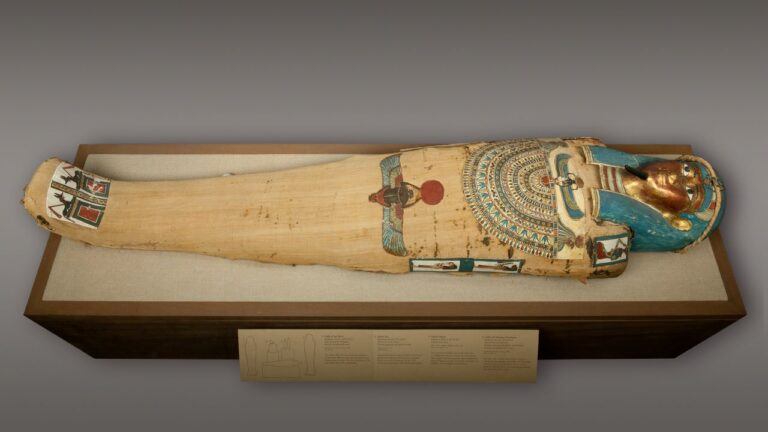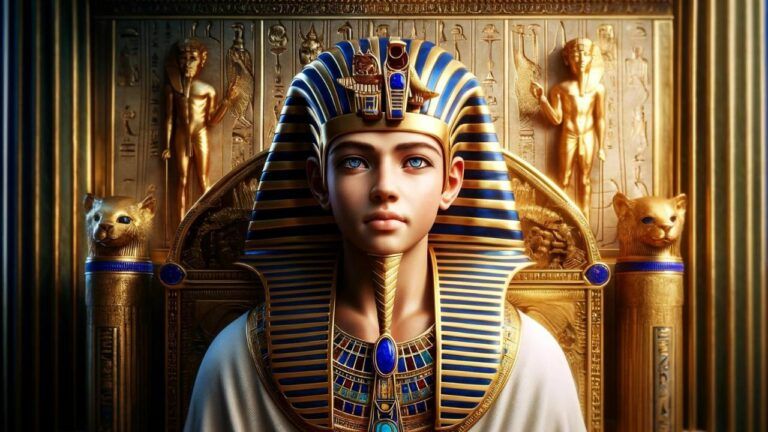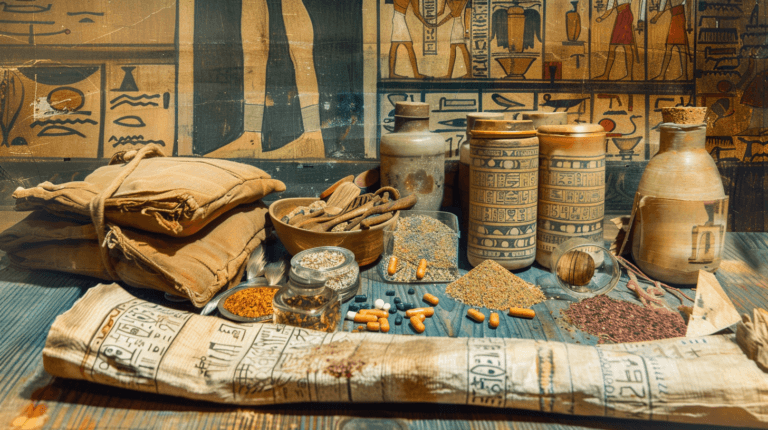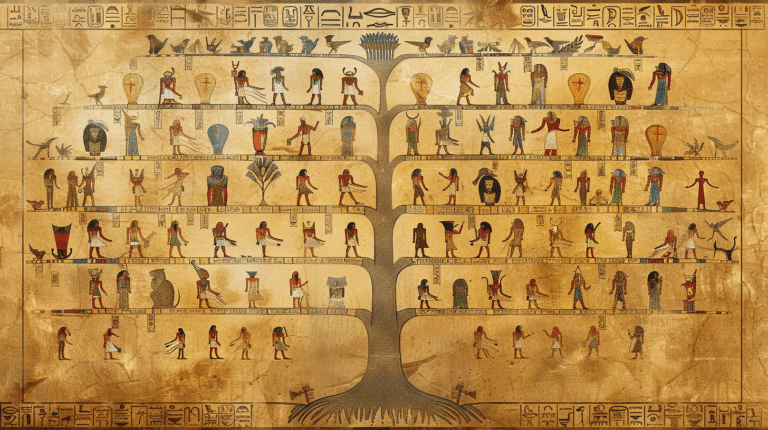What Language Did Cleopatra Speak?
Cleopatra, one of the most iconic figures of ancient Egypt, was more than just a queen; she was a polyglot, someone who could communicate in multiple languages. I find it impressive considering not many rulers at the time even bothered learning the language of their own subjects.
Yet, Cleopatra defied this norm – she was the first Ptolemaic ruler to actually learn and speak Egyptian. I can imagine her walking through the bustling markets of Alexandria, engaging with the locals in their native tongue. Let’s explore the question ‘what language did Cleopatra speak?’

Cleopatra’s language skills didn’t stop at Egyptian. She also spoke Greek – which makes sense given her Macedonian Greek heritage – and that was the lingua franca (a language used for communication between groups with different native languages) of her regime.
Being fluent in Greek allowed her to administer her rule effectively over Egypt’s diverse population and navigate through the complexities of a Hellenistic society. However, Cleopatra’s command of languages extended even further, as she communicated in several other tongues spoken across the Mediterranean, making her an adept and strategic ruler capable of direct diplomacy without the need for an interpreter.
Languages Cleopatra Spoke
From what we know, Cleopatra spoke eight (8) languages!
| Language | Region |
|---|---|
| Ancient Egyptian | Egypt |
| Ancient Greek | Greek-speaking territories |
| Parthian | Parthian Empire |
| Hebrew | Judea |
| Arabic | Arabian Peninsula |
| Syriac | Syria |
| Median | Iranian territories |
| Ethiopic | Ethiopia |
Cleopatra’s Role and Reign
Before I dive in, I want to set the stage for you about her role as the Queen of Egypt. She rose to become the last active ruler of the Ptolemaic Kingdom of Egypt, and her time on the throne involved complex political alliances and dramatic upheavals, leading to her ultimate downfall.
“Cleopatra’s reputation as a seductive temptress has eclipsed her true intellectual brilliance and remarkable accomplishments. It is essential to recognize her as a powerful and influential leader who contributed significantly to the cultural and intellectual landscape of her time.” – Dr. Alexandria Hamilton, Egyptologist
Rise to Power
She was born as Cleopatra VII Thea Philopator around 69 BCE, daughter to Ptolemy XII. Her ascension to the throne in 51 BCE came after her father’s death. Egypt was her inheritance, but she co-ruled with her brother due to tradition, which insisted on a male co-regent, whether he was a brother or a son.
Cleopatra as Pharaoh
Cleopatra’s reign stood out because she was the first in the Ptolemaic dynasty to learn the Egyptian language. She adopted common religious customs and presented herself as the reincarnation of an Egyptian goddess. Through this, she solidified her status as a legit ruler in the eyes of her Egyptian subjects.
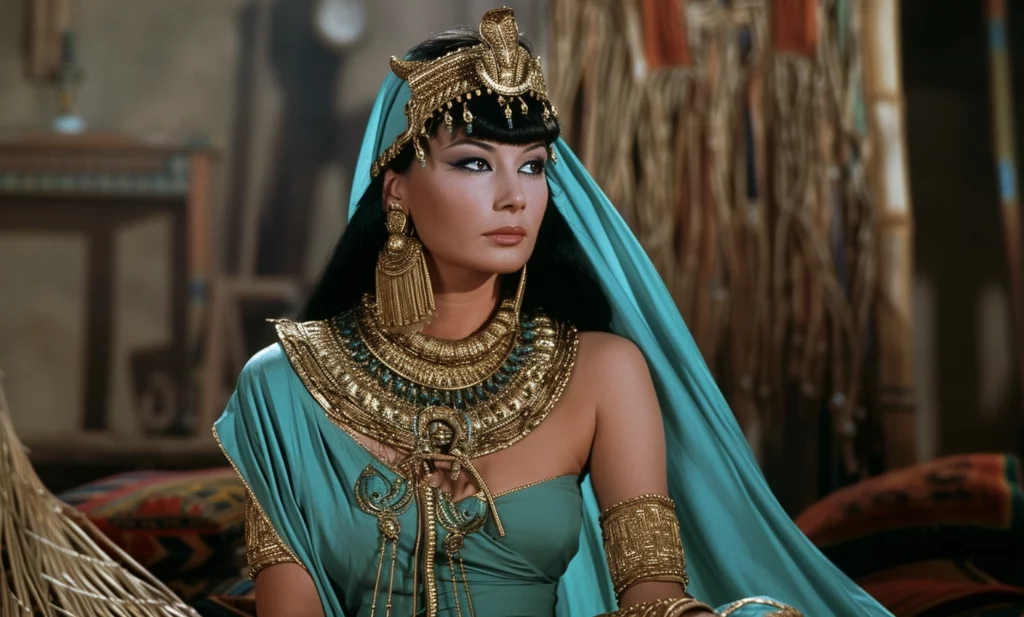
Political Alliances
She wasn’t just playing politics in Egypt. Cleopatra formed crucial alliances with Rome, highlighted by her relationships with Julius Caesar and Mark Antony. Her tie with Caesar began around 48 BCE, and after his assassination, she partnered with Mark Antony. Together, they navigated through the rocky political landscapes of Egypt and Rome.
Downfall and Death
Unfortunately, her alliances couldn’t secure her position forever. After a civil war between her forces and those of Octavian, the future Augustus, the defeat was inevitable. In 30 BCE, faced with the reality that Egypt would fall under Roman control, she chose to end her own life. Cleopatra’s death marked the end of the Ptolemaic dynasty and saw Egypt become a province of the Roman Empire.
Cleopatra’s Cultural and Linguistic Impact
When I reflect on Cleopatra’s legacy, it’s clear that her linguistic talents were pivotal. They not only shaped her diplomatic strategies but also left a lasting imprint on culture and media representations of her life.
Languages in Ptolemaic Egypt
During her reign, the Ptolemaic dynasty valued Greek as the official language. Koine Greek was prevalent, given its roots from Alexander the Great’s conquests. The diverse populace spoke various languages, so in Egypt, the native Egyptian language was widely utilized alongside Greek. This multilingualism in administration and daily communication hinted at the cultural complexities within her kingdom.
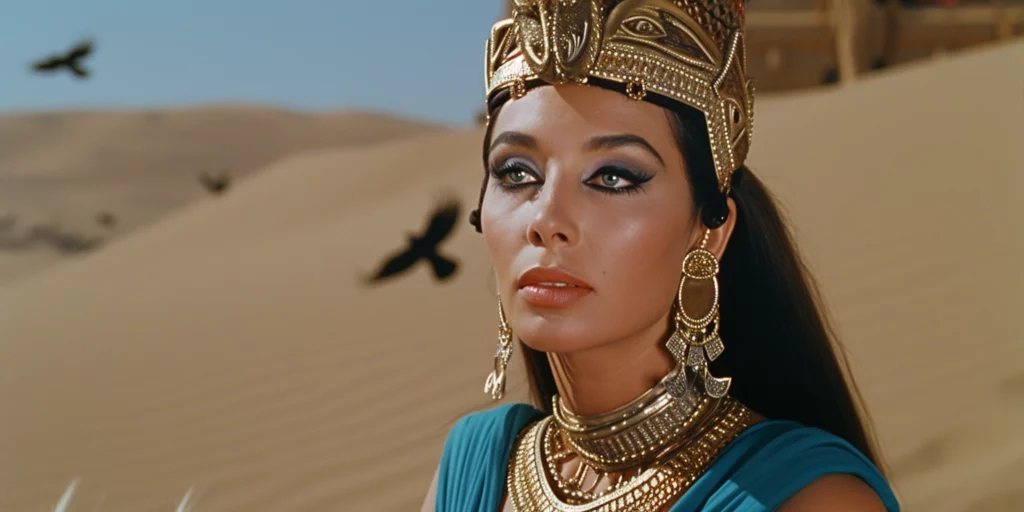
Cleopatra’s Diplomacy
Her ability to speak multiple languages was uncommon among the royalties of her time. It allowed her to be an effective diplomat, forging strong political alliances without an interpreter. While she primarily spoke Koine Greek, the diplomatic lingo, her knowledge of languages like Aramaic enabled direct conversations with many ethnic groups under her rule. However, contrary to popular belief, she wasn’t known to speak Latin – her interactions with Rome likely happened in Greek.
Influences on Literature and Media
Her linguistic prowess has fascinated many, influencing literature and media throughout the centuries. She’s been depicted as a well-educated leader with a sharp intellect, often tied to the grandeur of the Library of Alexandria. The blend of Greek and Egyptian elements in her portrayal speaks to the rich cultural syncretism of the period. Moreover, the depiction in various works of art and propaganda often alludes to her skills in language as a symbol of my wide-reaching influence and cunning political acumen.
Historical Context and Relations
In my exploration of Cleopatra’s linguistic capabilities, it’s essential to consider the historical backdrop of her era, particularly Alexandria’s cosmopolitan nature, her interaction with prominent Roman figures, and the complex web of international relations she navigated.

Alexandria and Its Significance
Alexandria was the bustling heart of both commerce and culture during her time. Founded by Alexander the Great and further developed by the Ptolemaic dynasty, this city was a melting pot of Greek and Egyptian influences, reflected in the languages spoken there. Cleopatra hailed from the Ptolemaic lineage, which held Greek customs and language in high esteem. Alexandria wasn’t just any city; it was a central hub of knowledge and learning where Greek was the lingua franca.
Cleopatra’s Contemporaries
Interacting with the likes of Julius Caesar and Mark Antony, notable Roman generals and statesmen, presented her with a unique set of linguistic demands. While it’s widely acknowledged that she spoke Greek, her encounters with Romans like them might not have required her to speak Latin, despite popular belief. Instead, it’s plausible that they conversed with her in Greek, which was common among the educated in Rome. Meanwhile, her tumultuous relationship with the Roman Senate, sometimes marred by Roman propaganda, added layers of diplomatic intricacy to Cleopatra’s reign.
International Relations
Cleopatra’s reign overlapped with major events like the Battle of Actium and the Donations of Alexandria. These events were tied to the complex politics between Rome, Syria, and Egypt. Her political moves were bold.
She supported Caesar against Pompey and granted titles during the Donations of Alexandria. These actions earned her both admiration and resentment from figures like Octavian and the Roman Senate. Even her conflict with her sister, Arsinoe, became an international spectacle, highlighting the era’s tangled power struggles.
What Language Did Cleopatra Speak – Conclusion
Cleopatra’s language abilities were a powerful tool in her reign. It transformed her from a Macedonian Greek queen ruling Egypt to a leader who genuinely connected with her subjects. By learning Egyptian and embracing the local culture, she set herself apart within her dynasty and solidified her image as a true pharaoh. Her multilingualism gave her a diplomatic edge, forging strong bonds with Rome and navigating complex international relationships.
While history remembers Cleopatra for her beauty and her dramatic romances, her fluency in multiple languages deserves equal, if not more, recognition. It’s a testament to her intelligence, political savvy, and a genuine desire to understand the diverse people she ruled. Her legacy reminds us that language is a bridge, not a barrier, and effective communication can be a vital tool for leadership and cultural understanding.



